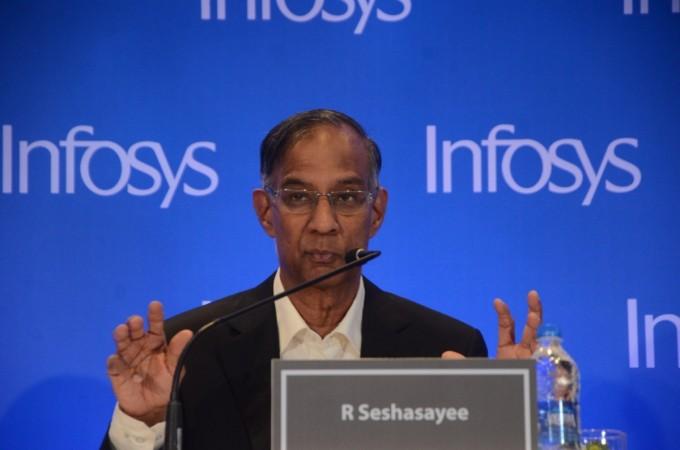
Infosys Chairman R Seshasayee will retire from the board of India's second largest software exporter in May 2018 when he turns 70 in May next year, according to a report in the Business Standard. He announced this at the company's annual general meeting (AGM) on Saturday.
Seshasayee was appointed as chairman in 2015 after his predecessor KV Kamath stepped down. He played down reports of rifts emerging with the founders and said the company took the suggestions of promoters "seriously" and would continue to engage with its founders, including N R Narayana Murthy. The board was a trustee of the organisation, Seshasayee was quoted by Business Standard as saying.
"When comments are made by the founders, we consider them even more seriously and respectfully as we all recognise that we are but trustees of an extraordinary institution that has been the result of the labour, foresight and genius of an extraordinary group of founders," The Times of India newspaper said, quoting Seshasayee.
He also promised that for the rest of his tenure, he would focus on improving shareholder value and planning a smooth transition to his successor.
At the AGM, Seshasayee said Infosys was undertaking three transformations simultaneously to induce a cultural transformation within the organisation and how it is run. "The first is from being a traditional IT services company to an innovation-led one. Secondly, the cultural transformation that comes with the induction of global leadership. The last is abrupt transition from a promoter-led board and management to an independent one."
The ET reported that at the company AGM, a spokesperson said that the IT major was aware of the fact that the compensation gap between the top management and employees has widened, a fact criticised by co-founder Narayana Murthy. The spokesperson recognised that the company's communication on compensation could have been better. To address that, it has restructured compensation to stock-based rewards, it said.
The company said that more than 11,000 jobs have been released due to automation. Revenue per full-time employee (FTE) increased 1.2 per cent as a result of automation, utilisation and productivity improvements, the company said.
"It is a clear demonstration of how software is going to play a crucial role in our business model," it said.

















